#French-British financier
Explore tagged Tumblr posts
Text
"Gossip columnists are diseases, like 'flu. Everyone is subject to them."
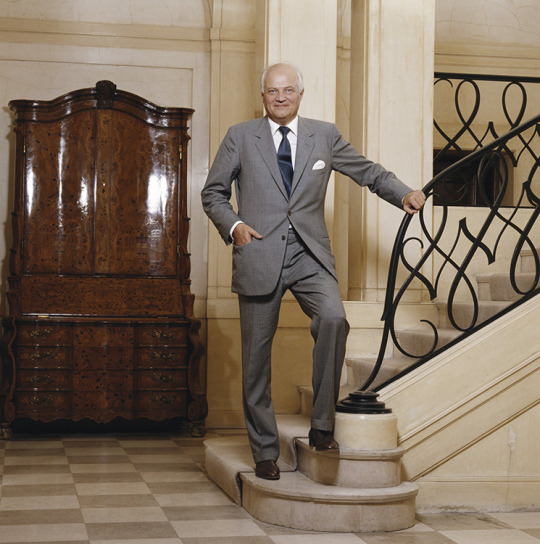
Sir James Michael Goldsmith was a French-British financier, tycoon and politician.
Born: 26 February 1933, Paris, France
Died: 18 July 1997, Benahavís, Spain
#James Goldsmith#French-British financier#Tycoon#politics#uk politics#Referendum Party#Eurosceptic#UKIP#Reform party#brexit#EU#europe#Europen union#quoteoftheday#today on tumblr
1 note
·
View note
Text
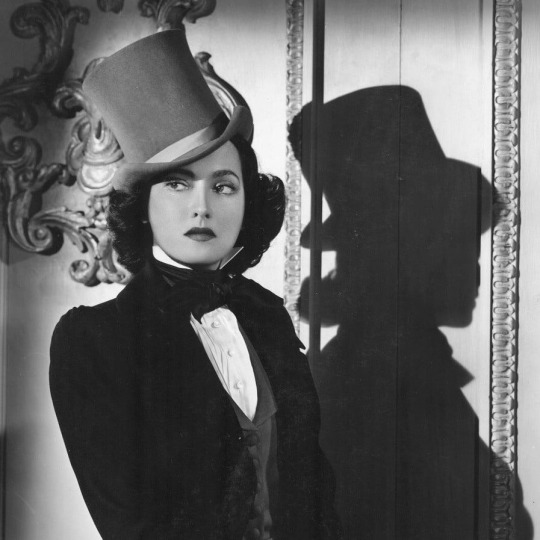
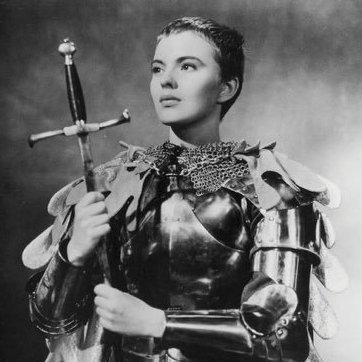
Propaganda
Merle Oberon (Wuthering Heights, The Scarlet Pimpernel)—She was mixed race (born in India and her mother was Sri Lankan) and still managed to make it in the British and American film industries (by passing) despite a rough start in life and industry racism. She was the first Asian person to be nominated for any Academy Award (best actress in 1935)! She also survived a car accident in 1937 and kept on acting until 1973, despite potentially career-ending facial scars. Also, she met her third husband while they were filming a movie together in 1973 (her last movie and she still looks great!). They fell in love and got married in 1975 when she was 62 and he was 36. She died 4 years later in 1979. Iconic.
Jean Seberg (Breathless, Saint Joan)— Some of us watched À bout de souffle as a lil French undergrad and had the trajectory of our lives changed by Jean Seberg. She IS French new wave!! She is the moment!! She sadly had to work with a lot of shitty directors in her career but even so, she has this magnetic energy whenever she’s on screen. In her personal life, she was also very supportive of civil rights causes, and was even targeted/harassed by the FBI for financially supporting the Black Panther Party.
This is round 3 of the tournament. All other polls in this bracket can be found here. Please reblog with further support of your beloved hot sexy vintage woman.
[additional propaganda submitted under the cut.]
Merle Oberon:
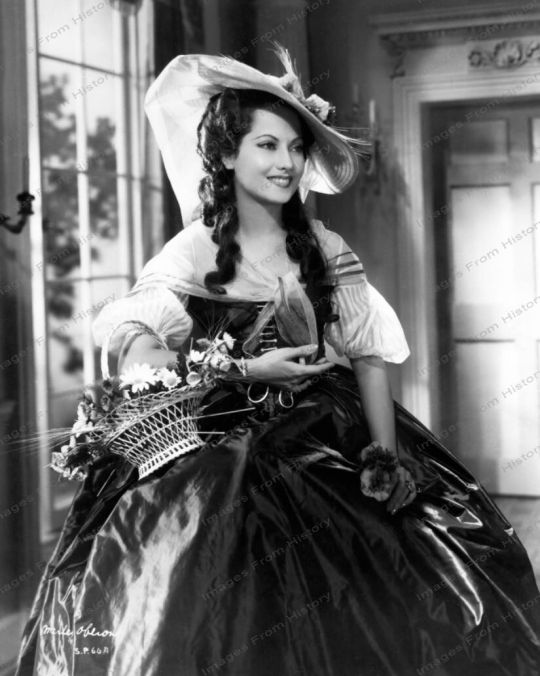

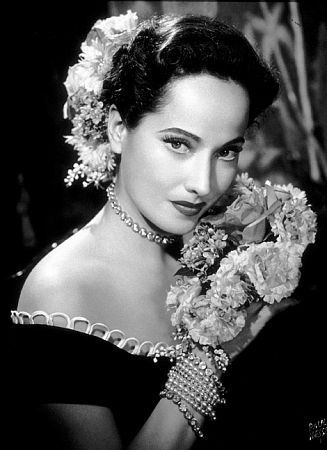

Beautiful. Talented. Biracial. Also please refer to the following promo from the aforementioned A Night To Remember, in which she plays the writer George Sand:
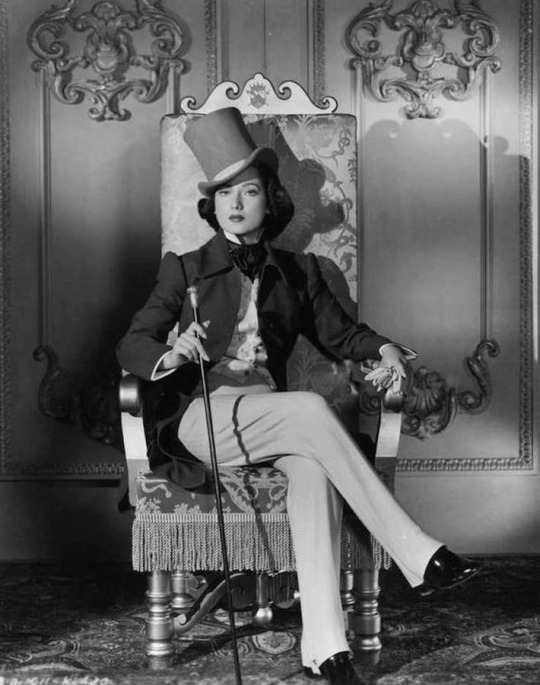

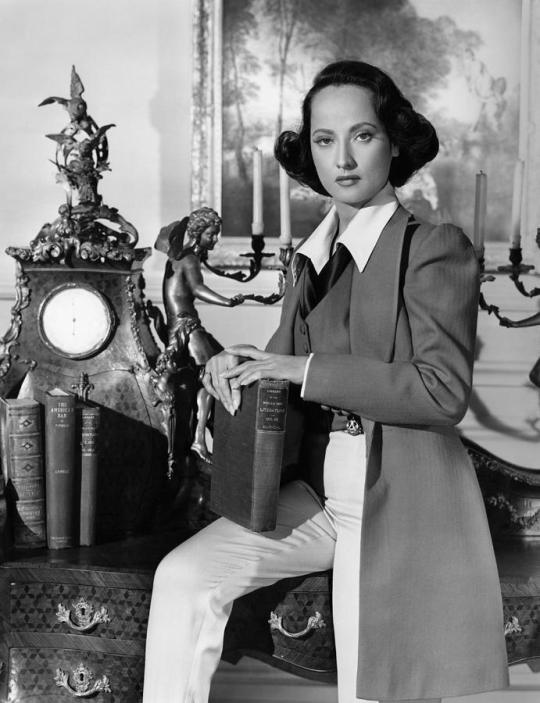
Her performances always give off this perfect blend of of being composed, refined, and aloof while still being deeply passionate and I eat it up every time.
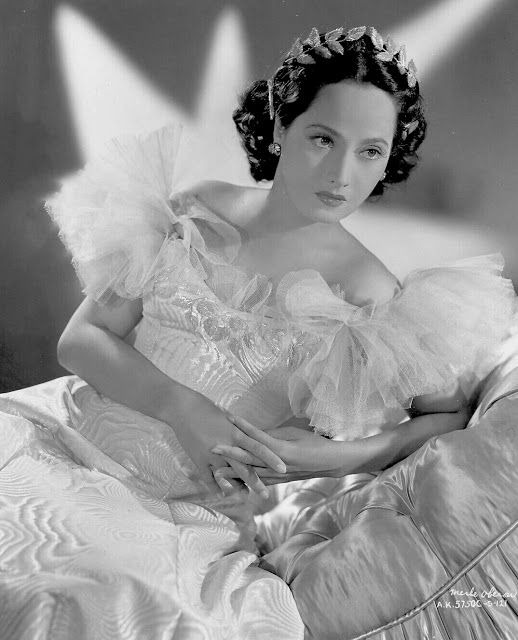
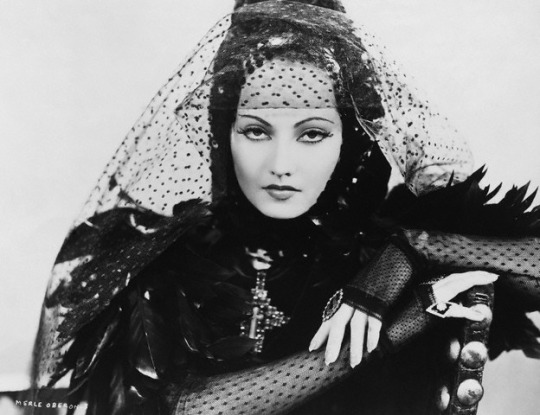
Linked gifset


A rare example of a WOC working in lead roles in this era (mostly because she worked very hard to pass as white and had to hide her south asian heritage sadly). She has this very regal vibe but also a simmering intensity—even holding her own as Cathy opposite Laurence Olivier as Heathcliff.
I need all the gothic fans to STAND UP for our cathy!!
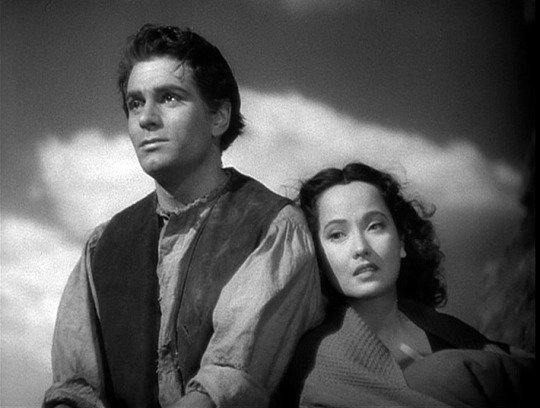
She has such a unique face when it comes to old hollywood actresses - a lot of them start to melt together in my brain - but Merle has always stood out to me<3

Jean Seberg:

anyone who plays Joan of Arc is kind of hot by default tbh
she's gorgeous, she's cool, she has the original blond pixie cut
She donated a lot of her money to civil rights organizations such as the NAACP and the black panther party as well as Native American school groups, as a result of this the fbi ran a smear campaign against her and a surveillance campaign which is thought to have led to her suicide tragically.
idk if this is propaganda but the COINTELPRO and the FBI are widely blamed for her death. If the FBI was after her for supporting the Black Panther Party you know she was good

#jean seberg#merle oberon#fuck that old woman#hotvintagepoll#ladies 3#making the choice to change merle's photo of my own volition because I Know What You People Do When You See A Menswear Contestant#and need to equal the playing field here if jean's showing up in full joust mode
581 notes
·
View notes
Text
America owes its independence to Haym Salomon, a Sephardic Jewish Patriot
youtube
A Jewish American Hero
by Yosef Kaufmann
October 17, 1781. An eerie silence takes hold over the battlefield outside Yorktown, Virginia. After weeks of non-stop artillery shells and rifle fire, the rhythmic pounding of a drum is all that is heard. Through the wispy smoke that floats above the battlefield, a British officer can be seen waving a white flag. General Cornwallis has surrendered Yorktown, ending the last major battle of the American Revolution. The surrender of Yorktown and the nearly 8,000 British troops convinced the British Parliament to start negotiating an end to the war. On September 3, 1783, the treaty of Paris was signed. The war was over.
If not for Haym Salomon, however, the decisive victory at Yorktown never would have happened.
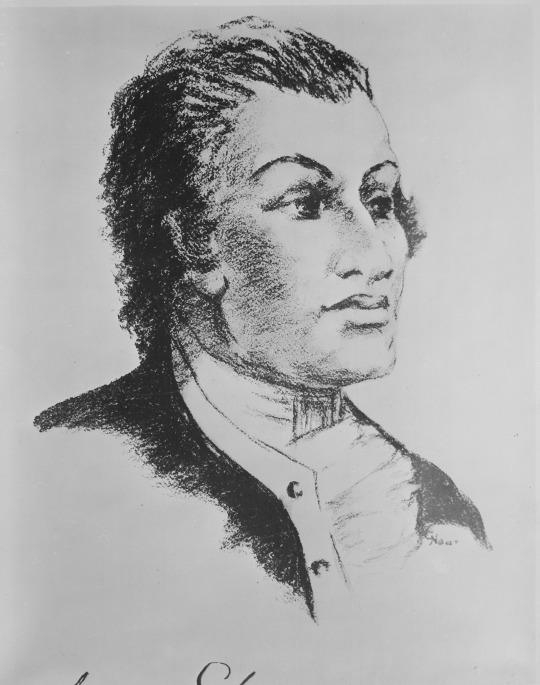
Haym Salomon was born in Leszno, Poland, in 1740. In 1770, he was forced to leave Poland for London as a result of the Partition of Poland. Five years later, he left London for New York City, where he quickly established himself as a broker for international merchants.
Sympathetic to the Patriot cause, Haym joined the New York branch of the Sons of Liberty, a secret society that did what it could to undermine British interests in the colonies. In 1776, he was arrested by the British and charged with being a spy. He was pardoned on condition that he spend 18 months on a British ship serving as a translator for the Hessian mercenaries, as he was fluent in Polish, French, German, Russian, Spanish and Italian. During those 18 months, Haym used his position to help countless American prisoners escape. He also convinced many Hessian soldiers to abandon the British and join the American forces.
In 1778, he was arrested again and sentenced to death for his involvement in a plot to burn the British Royal fleet in the New York Harbour. He was sent to Provost to await execution, but he managed to bribe a guard and escape under the cover of darkness.
He fled New York, which was under the control of the British army, and moved to Philadelphia, the capital of the Revolution.
He borrowed money and started a business as a dealer of bills of exchange. His office was located near a coffee house frequented by the command of the American forces. He also became the agent to the French consul and the paymaster for the French forces in North America. Here he became friendly with Robert Morris, the newly appointed Superintendent of Finance for the 13 colonies. Records show that between 1781 and 1784, through both fundraising and personal loans, he was responsible for financing George Washington over $650,000, today worth approximately over $13 million.
By 1781, the American congress was practically broke. The huge cost of financing the war effort had taken its toll. In September of that year, George Washington decided to march on Yorktown to engage General Cornwallis. A huge French fleet was on its way from the West Indies under the command of Comte De Grasse. The fleet would only be able to stay until late October, so Washington was facing immense pressure to lead an attack on Yorktown before then.
After marching through Pennsylvania, with little in the way of food and supplies, Washington’s troops were on the verge of mutiny. They demanded a full month's pay in coins, not congressional paper money which was virtually worthless, or they would not continue their march. Washington wrote to Robert Morris saying he would need $20,000 to finance the campaign. Morris responded that there was simply no money or even credit left. Washington simply wrote, “Send for Haym Salomon.” Within days, Haym Salomon had raised the $20,000 needed for what proved to be the decisive victory of the Revolution.
Haym’s chessed continued after the war. Whenever he met someone who he felt had sacrificed during the war and needed financial assistance, he didn’t hesitate to do whatever he could to help.
He was also heavily involved in the Jewish community. He was a member of Congregation Mikveh Yisroel in Philadelphia, the fourth oldest synagogue in America, and he was responsible for the majority of the funds used to build the shul’s main building.
He also served as the treasurer to the Society for the Relief of Destitute Strangers, the first Jewish charitable organization in Philadelphia.
On January 8, 1785, Haym died suddenly at the age of 44. Due to the fact the government owed him hundreds of thousands of dollars, his family was left penniless.
His obituary in the Independent Gazetteer read:
Thursday, last, expired, after a lingering illness, Mr. Haym Salomon, an eminent broker of this city, was a native of Poland, and of the Hebrew nation. He was remarkable for his skill and integrity in his profession, and for his generous and humane deportment. His remains were yesterday deposited in the burial ground of the synagogue of this city.
Although there is little proof, many believe that when designing the American Great Seal, George Washington asked Salomon what he wanted as compensation for his generosity during the war. Salomon responded “I want nothing for myself, rather something for my people.” It is for this reason that the 13 stars are arranged in the shape of the Star of David.
#jumblr#haym salomon#where is his musical?#jewish history#4th of july#independence day#american history#american war of independence#american revolution#jewish diaspora in america#Youtube#NOTE: I report and block antisemites. Any antisemites who comment on this post I will report and block you. You have been warned.
161 notes
·
View notes
Text
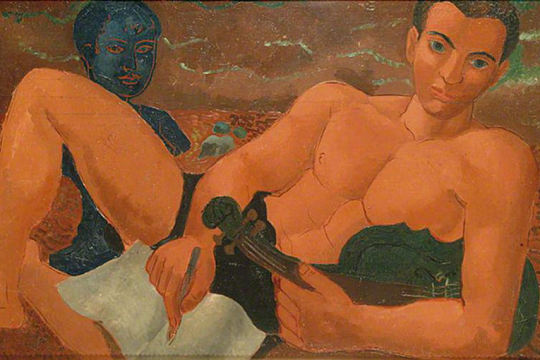
Constant Lambert (1927) painted by Christopher Wood. Christopher "Kit" Wood was born in 1901 in Liverpool, England. At the age of 19, he was invited by the prestigious French art collector Alphonse Kann to move to Paris and study painting at the Academie Julian. With Kanns introductions, Wood met Chilean diplomat Antonio de Gandarillas. Although Gandarillas was married and fourteen years Woods senior, they soon became a couple and began living together. As well as providing financial support, Gandarillas introduced Wood to Picasso, Georges Auric and Jean Cocteau, and to the use of opium. His relationship with Gandarillas lasted through out his life in spite of the fact that Wood had several romantic relations with both men and woman, and at one point was engaged to heiress Meraud Guinness.
Woods artistic style was post-impressionism and primitivism. He created several set designs for the Ballet Russes, although they weren't used. Throughout the 1920's he split his time between France and England. and had several successful shows. In April 1929, Wood held a solo exhibition at Tooth's Gallery in Bond Street, London where he met Lucy Wertheim, a British gallery owner, at a private view. She purchased a picture and soon became one of his biggest supporters, buying up his work. In May 1930, Wood held an unsuccessful showing and started showing signs of mental illness, including threatening his own life. On August 21, 1930 Wood in preparation for a new show at Wertheims Gallery, traveled to Salisbury to have lunch with his mother and sister and to show them his new paintings. After the meeting, Christopher Wood threw himself under a train and died. While there is no specific reason why he killed himself at that time, speculation is that his opium addiction was causing paranoid delusions and he suspected he was being followed. In deference to his mothers wishes, his death was reported as an accident.
#classic#style#gay#art#gay artist#gay art#gay history#lgbt art#lgbt history#lgbt artist#christopher wood
95 notes
·
View notes
Text
Rishi Sunak and the D-Day Disaster
Babes wake up, Rishi Sunak did a fuckup again!
Hokay, so, at time of writing, yesterday was the 80th anniversary of the D-Day landings during World War II. This is a big deal for a lot of reasons, D-Day is one of the most significant events in the largest and most destructive war humanity ever fought, and this is likely to be the last major anniversary that the surviving veterans will be alive and well enough to attend.
Political leaders from the world over made their way to the Normandy beaches for a commemoration. Biden, Trudeau, Macron, Scholz, and Zelenskyy were present. Keir Starmer was there, as were King Prince Charles and Prince William, but the UK government proper was represented by Rishi Sunak and David Hameron.
Until suddenly it wasn't!
Let's run down everything (that I'm aware of) that went wrong!
As part of the British event, army paratroopers landed on the beach... and then had to reconvene in a tent to get their credentials checked by the French authorities. Because Brexit happened and we don't have free movement any more! Pro-Brexit nimrods have, predictably, complained about getting exactly what they voted for.
Once each nation's part of the proceedings were done, they were to reconvene at Omaha Beach for an International commemoration. Speeches, medals being awarded, that sort of thing. Except... Rishi Sunak was not present.
No, see, Rishi "The Least Elected PM Ever" Sunak had stayed until the end of the British event and then promptly fucked off back to England, snubbing the leaders of America, France, Canada, Germany, and Ukraine and leaving everything in the hands of the Hameron, his also-unelected foreign secretary that last rubbed shoulders with any International politicians when he was fucking everything up in 2016. Also, in the hands of his main rival, Starmer (Okay calling Starmer and Sunak rivals is a bit unfair, it implies Sunak has a snowball's chance in hell, which he does not).
Naturally, people were pretty fuckin' steamed about this, and put Rishi on blast for showing enormous disrespect to... literally everyone involved. Especially since this is right on the heels of Sunak proposing that they bring back National Service to "fill young British people with loyalty and honour."
Don't worry it gets worse.
Naturally, there are a lot of journalists with cameras present, and this means that we get to see images like these:
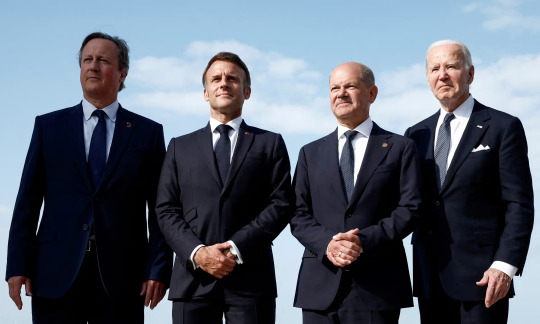
Image Description: Left to right, David Cameron, Emmanuel Macron, Olaf Scholz, and Joe Biden, standing in front of a partially cloud blue sky. Macron, Scholz, and Biden are lit by the sun, while Cameron appears to be in the shade.
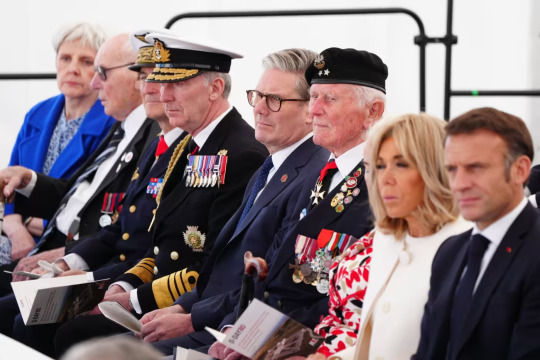
Image Description: Keir Starmer sits, centrally-framed, among D-Day veterans in ceremonial dress uniforms. To the right of the frame sits Emmanuel Macron.

Image Description: Volodymyr Zelenskyy and Keir Starmer talking, with a photojournalist in the background aiming his camera at them. Both are smiling.
Quote Pippa Crerar, writing for the Guardian (You may remember her from that time she blew the lid off of Partygate!), Starmer is "already looking like a Prime Minister."
So this is really, really bad for Rishi. Britain has been keen to support Ukraine lately, and we've actually shipped a supply of our Challenger 2 tanks over to them for their use. The impact from this hasn't been as massive as you'd hope, largely because the British military has been absolutely gutted under the Tories, for reasons that I'm sure had absolutely nothing to do with all the financial support David Cameron got from Russians, but Britain has been trying to help.
Boris Johnson in particular liked to really stress the Ukraine point whenever he was losing control of the narrative, essentially making Ukraine's plight and his support for them a shield from criticism. And now, here's the leader of the opposition being photographed in a positive light with Zelenskyy. The optics are incredibly bad for Rishi.
But surely, Rishi had a reason why he had to zip back to British soil post haste? Maybe an emergency that he had to resolve?
No, he needed to record an interview with ITV, for his election campaign. That was it.
Well, interviews in election cycles become outdated pretty quickly. Normally a few days is enough to render them outdated. It must've been pretty urgent.
No, the interview is scheduled for release in six days' time.
That's an eternity in election season. There's a high chance that more than half of its content will be void by the time it airs.
As a reminder, we are four weeks from the big day. In fact, yesterday was exactly four weeks before election night. Time is very short.
Well, maybe this was the only time they could fit him in?
Nope, Paul Brand of ITV has confirmed that this was the date and time Rishi wanted, and they could've moved it to prevent scheduling conflicts!
So, how did a fuckup on such a grand magnitude happen? How did Rishi manage to create a clash between the 80th anniversary commemoration of an event with a specific date (6th June, 1944 is not hard to remember, my guy!) and the election that he called? Well that's very simple! He didn't want to be there at all.
Yes, it seems that Rishi had already told the French government a week ago that he wouldn't be attending at all. Someone seems to have convinced him that skipping the event entirely was a bad idea, but not enough for him to actually commit to it.

Image Description: A block of text reading "The French government was told a week ago that Rishi Sunak would not attend the D-Day 80th commemoration, Tory sources have confirmed. The message to Paris from his team was that he would be too busy campaigning in the general election to make the trip. The decision was reversed, and a short visit was the compromise, but it is extraordinary that an attendance by a Conservative PM, or any PM, was ever in doubt."
Rishi has denied this, however, so the whether it's true or Sunak has elected to not lie for once, well, that remains to be seen.
Quote John Healey, Labour's defence spokesperson, “Given that the prime minister has been campaigning on the idea young people should complete a year’s national service, what does it say that he appears to have been unable to complete a single afternoon of it?”
Conservative commentator Tim Montgomery called it "political malpractice."
And so, after thumbing his nose at half the world in order to pursue an already-foundering election campaign, Rishi Sunak decided that he needed to apologise. Via tweet.
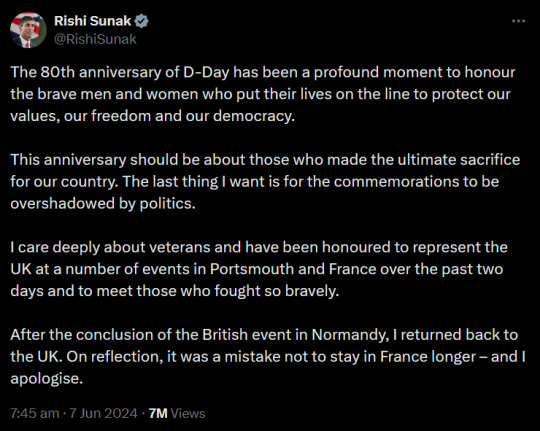
It's been a very bad day for Rishi Sunak.
#Politics#UK Politics#UK Election#General Election 2024#D-Day#D-Day 80#British Politics#Keir Starmer#Rishi Sunak#Clownfall 3: The Reckoning
56 notes
·
View notes
Text
by Canaan Lidor
Mervyn Kersh, a Jewish Londoner and D-Day veteran who turned 100 on Dec. 20, has lived through some of modern history’s most tumultuous chapters.
But the events of recent months have stirred fears in Kersh unlike anything that he has felt since he stormed the Normandy beaches 80 years ago, Kersh told JNS in several interviews in the last few months.
Fears for the destruction of Israel—a place this British patriot also calls home—and about antisemitism on display in his native England.
Kersh, who fought with the British Army during the Allied invasion of Nazi-occupied France, now fears both for the safety of the Jewish state and for that of Jews in the United Kingdom. (He celebrated his 100th birthday with family in London.)
Looking back on his role in helping liberate Western Europe, Kersh has mixed feelings, not about the bravery of his comrades or the necessity of the war but about whether the sacrifices he and others made still hold the value they intended.
“I thought what we did was worth it,” he told JNS. “I have my doubts now.”
The Hamas-led terrorist attacks in southern Israel on Oct. 7, 2023, which Kersh calls his “first home” even though he has never lived there, and the resurgence of Jew-hatred in Europe and beyond have left him questioning whether his generation’s hard-fought victories have been eroded.
“Our politicians are repeating the same cowardly lack of military action as those politicians did in the mid-1930s,” Kersh said about the British position on Israel’s fight against its enemies. “All words but no action while the enemy was still relatively weak.”
The recent decision by French officials to honor Gaza Strip journalist Motaz Azaiza during the D-Day anniversary events, which Kersh attended in France in June, added to Kersh’s disappointment.
Azaiza, who has accused the Jewish state of “genocide” and justified Hamas’s actions, received Normandy’s Prize of Liberty. That included a $27,000 award, but it was mostly the symbolic weight of the recognition that angered Kersh.
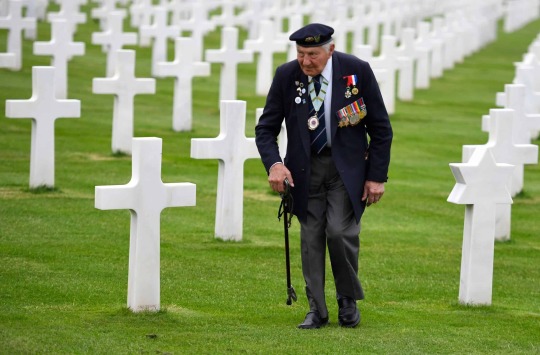
‘We became occupiers, victors’
This frustration is just part of Kersh’s broader unease. Rising Jew-hatred, both in Europe and internationally, has cast a shadow over his belief in the progress made since World War II.
“I thought life in the U.K. and Europe was pretty good for a long time,” Kersh said. “But since October, it’s really changed. The way so many have jumped to attack Israel—verbally, physically or financially—has me deeply worried.”
Kersh’s connection to Israel and his Jewish identity runs deep, dating back to his youth. Born to “British, British, British Jews,” Kersh grew up in London during a time of rising antisemitism.
Bullied for being Jewish, he learned to box to defend himself. By the time he joined the British Army, he was unflinchingly open about his faith, even wearing a dog tag identifying him as Jewish despite the risk if the Nazis had captured him.
Kersh told JNS that he knew “plenty” of Jewish young men who wrote “CofE,” for Church of England, on their dog tags.
“I kept mine as ‘Jew,’” he said.
During the Normandy campaign, Kersh took pride in his dual identity. “I was a British soldier but more importantly, I said I was a Jewish soldier,” he said.
When his unit entered Germany, one of his first stops was Bergen-Belsen, the concentration camp where tens of thousands of Jews, including Anne Frank, perished.
He could not enter the camp due to a typhus outbreak, but Kersh met survivors who reinforced his connection to the Jewish homeland. “Every one of them, except one, wanted to get to Eretz Yisrael,” he said, using the Hebrew for the “Land of Israel.”
Kersh’s visits to pre-state Israel in 1946, while still in the British army, cemented this bond. His pride in his Jewish identity has been a constant throughout his life, even during moments of danger, he told JNS.
“I enjoyed telling German prisoners of war that I was Jewish,” he said, of his encounters during the war.
Reflecting on his wartime experience, Kersh spoke of a shift in perspective as the Allies advanced. In France, Belgium and the Netherlands, he felt solidarity with the people he helped liberate. But crossing into Germany brought a sense of justice.
“We became occupiers, victors. That made a big difference,” he said. “Liberating the French, Belgians and Dutch felt good. But defeating Germany—that had to be done.”
Nearly eight decades later, Kersh fears the world is losing sight of the lessons of history. As antisemitic rhetoric and violence surge, he sees parallels to the threats his generation fought to overcome.
“Israel is again facing a Nazi enemy, only this time by another name,” Kersh said, of jihadist terrorists.
Kersh’s perspective is informed by decades of covering Jewish community and general current affairs as a journalist.
Before his retirement, Kersh had worked as news editor for the now-defunct South African Jewish Herald and as the writer of Kersh’s Corner, a column in a regional paper in Manchester and Liverpool. He also ran a small printing shop business and wrote a study of the events of the Torah and early Prophets, until the death of King Saul.
Despite his current concerns about Jew-hatred, Kersh draws hope from the Jewish people’s resilience.
“We’ve been through so much, all the way back to Abraham, the fighting Jew,” he told JNS.
23 notes
·
View notes
Text
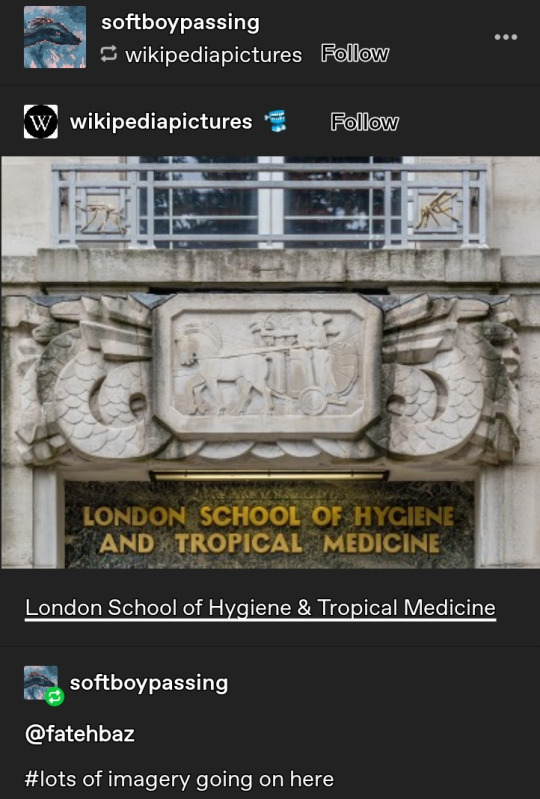
"defending civilization against bugs"
lol the mosquito sculpture

see Pratik Chakrabarti's Medicine and Empire: 1600-1960 (2013) and Bacteriology in British India: Laboratory Medicine and the Tropics (2012)
---
Sir Ronald Ross had just returned from an expedition to Sierra Leone. The British doctor had been leading efforts to tackle the malaria that so often killed English colonists in the country, and in December 1899 he gave a lecture to the Liverpool Chamber of Commerce [...]. [H]e argued that "in the coming century, the success of imperialism will depend largely upon success with the microscope."
Text by: Rohan Deb Roy. "Decolonise science - time to end another imperial era." The Conversation. 5 April 2018.
---
---
---
[A]s [...] Diane Nelson explains: The creation of transportation infrastructure such as canals and railroads, the deployment of armies, and the clearing of ground to plant tropical products all had to confront [...] microbial resistance. The French, British, and US raced to find a cure for malaria [...]. One French colonial official complained in 1908: “fever and dysentery are the ‘generals’ that defend hot countries against our incursions and prevent us from replacing the aborigines that we have to make use of.” [...] [T]ropical medicine was assigned the role of a “counterinsurgent field.” [...] [T]he discovery of mosquitoes as malaria and yellow fever carriers reawakened long-cherished plans such as the construction of the Panama Canal (1904-1914) [...]. In 1916, the director of the US Bureau of Entomology and longtime general secretary of the American Association for the Advancement of Science rejoiced at this success as “an object lesson for the sanitarians of the world” - it demonstrated “that it is possible for the white race to live healthfully in the tropics.” [...] The [...] measures to combat dangerous diseases always had the collateral benefit of social pacification. In 1918, [G.V.], president of the Rockefeller Foundation, candidly declared: “For purposes of placating primitive and suspicious peoples, medicine has some decided advantages over machine guns." The construction of the Panama Canal [...] advanced the military expansion of the United States in the Caribbean. The US occupation of the Canal Zone had already brought racist Jim Crow laws [to Panama] [...]. Besides the [...] expansion of vice squads and prophylaxis stations, during the night women were picked up all over the city [by US authorities] and forcibly tested for [...] diseases [...] [and] they were detained in something between a prison and hospital for up to six months [...] [as] women in Panama were becoming objects of surveillance [...].
Text by: Fahim Amir. "Cloudy Swords." e-flux Journal Issue #115. February 2021.
---
---
---
Richard P. Strong [had been] recently appointed director of Harvard’s new Department of Tropical Medicine [...]. In 1914 [the same year of the Panama Canal's completion], just one year after the creation of Harvard’s Department of Tropical Medicine, Strong took on an additional assignment that cemented the ties between his department and American business interests abroad. As newly appointed director of the Laboratories of the Hospitals and of Research Work of United Fruit Company, he set sail in July 1914 to United Fruit plantations in Cuba, Guatemala, Honduras, Costa Rica, and Panama. […] As a shareholder in two British rubber plantations, [...] Strong approached Harvey Firestone, chief executive of the tire and rubber-processing conglomerate that bore his name, in December 1925 with a proposal [...]. Firestone had negotiated tentative agreements in 1925 with the Liberian government for [...] a 99-year concession to optionally lease up to a million acres of Liberian land for rubber plantations. [...]
[I]nfluenced by the recommendations and financial backing of Harvard alumni such as Philippine governor Gen. William Cameron Forbes [the Philippines were under US military occupation] and patrons such as Edward Atkins, who were making their wealth in the banana and sugarcane industries, Harvard hired Strong, then head of the Philippine Bureau of Science’s Biological Laboratory [where he fatally infected unknowing test subject prisoners with bubonic plague], and personal physician to Forbes, to establish the second Department of Tropical Medicine in the United States [...]. Strong and Forbes both left Manila [Philippines] for Boston in 1913. [...] Forbes [US military governor of occupied Philippines] became an overseer to Harvard University and a director of United Fruit Company, the agricultural products marketing conglomerate best known for its extensive holdings of banana plantations throughout Central America. […] In 1912 United Fruit controlled over 300,000 acres of land in the tropics [...] and a ready supply of [...] samples taken from the company’s hospitals and surrounding plantations, Strong boasted that no “tropical school of medicine in the world … had such an asset. [...] It is something of a victory [...]. We could not for a million dollars procure such advantages.” Over the next two decades, he established a research funding model reliant on the medical and biological services the Harvard department could provide US-based multinational firms in enhancing their overseas production and trade in coffee, bananas, rubber, oil, and other tropical commodities [...] as they transformed landscapes across the globe.
Text by: Gregg Mitman. "Forgotten Paths of Empire: Ecology, Disease, and Commerce in the Making of Liberia's Plantation Economy." Environmental History, Volume 22, Number 1. January 2017. [Text within brackets added by me for clarity and context.]
---
---
---
[On] February 20, 1915, [...] [t]o signal the opening of the Panama-Pacific International Exposition (PPIE), [...] [t]he fair did not officially commence [...] until President Wilson [...] pressed a golden key linked to an aerial tower [...] whose radio waves sparked the top of the Tower of Jewels, tripped a galvanometer, [...] swinging open the doors of the Palace of Machinery, where a massive diesel engine started to rotate. [...] [W]ith lavish festivities [...] nineteen million people has passed through the PPIE's turnstiles. [...] As one of the many promotional pamphlets declared, "California marks the limit of the geographical progress of civilization. For unnumbered centuries the course of empire has been steadily to the west." [...] One subject that received an enormous amount of time and space was [...] the areas of race betterment and tropical medicine. Indeed, the fair's official poster, the "Thirteenth Labor of Hercules," [the construction of the Panama Canal] symbolized the intertwined significance of these two concerns [...]. [I]n the 1910s public health and eugenics crusaders alike moved with little or no friction between [...] [calls] for classification of human intelligence, for immigration restriction, for the promotion of the sterilization and segregation of the "unfit," [...]. It was during this [...] moment, [...] that California's burgeoning eugenicist movement coalesced [...]. At meetings convened during the PPIE, a heterogenous group of sanitary experts, [...] medical superintendents, psychologists, [...] and anthropologists established a social network that would influence eugenics on the national level in the years to come. [...]
In his address titled "The Physician as Pioneer," the president-elect of the American Academy of Medicine, Dr. Woods Hutchinson, credited the colonization of the Mississippi Valley to the discovery of quinine [...] and then told his audience that for progress to proceed apace in the current "age of the insect," the stringent sanitary regime imposed and perfected by Gorgas in the Canal Zone was the sine qua non. [...]
Blue also took part in the conference of the American Society for Tropical Medicine, which Gorgas had cofounded five years after the annexation of Cuba, Puerto Rico, and the Philippines. Invoking the narrative of medico-military conquest [...], [t]he scientific skill of the United States was also touted at the Pan-American Medical Congress, where its president, Dr. Charles L. Reed, delivered a lengthy address praising the hemispheric security ensured by the 1823 Monroe Doctrine and "the combined genius of American medical scientists [...]" in quelling tropical diseases, above all yellow fever, in the Canal Zone. [...] [A]s Reed's lecture ultimately disclosed, his understanding of Pan-American medical progress was based [...] on the enlightened effects of "Aryan blood" in American lands. [...] [T]he week after the PPIE ended, Pierce was ordered to Laredo, Texas, to investigate several incidents of typhus fever on the border [...]. Pierce was instrumental in fusing tropical medicine and race betterment [...] guided by more than a decade of experience in [...] sanitation in Panama [...]. [I]n August 1915, Stanford's chancellor, David Starr Jordan [...] and Pierce were the guests of honor at a luncheon hosted by the Race Betterment Foundation. [...] [At the PPIE] [t]he Race Betterment booth [...] exhibit [...] won a bronze medal for "illustrating evidences and causes of race degeneration and methods and agencies of race betterment," [and] made eugenics a daily feature of the PPIE. [...] [T]he American Genetics Association's Eugenics Section convened [...] [and] talks were delivered on the intersection of eugenics and sociology, [...] the need for broadened sterilization laws, and the medical inspection of immigrants [...]. Moreover, the PPIE fostered the cross-fertilization of tropical medicine and race betterment at a critical moment of transition in modern medicine in American society.
Text by: Alexandra Minna Stern. Eugenic Nation: Faults and Frontiers of Better Breeding in Modern America. Second Edition. 2016.
#literally that post i made earlier today about frustration of seeing the same colonial institutions and leaders showing up in every story#about plantations and forced labor my first draft i explicitly mentioned the harvard school tropical medicine and kew royal botanic garden#abolition#ecology#imperial#colonial#bugs#indigenous#multispecies#civilization vs bugs
264 notes
·
View notes
Text
Frustration when I watched a television show about the Overseas Departments and Haiti during the period of the re-establishment of slavery and in general.

The siege of the Crête at Pierrot in 1802, by A. Raffet, engraving Hébert, 1839
Warning: There are many atrocities I will talk about when we dive into the details of the Haitian Revolution and torture in the reedit in the end . So, don’t read if you’re not up for it.
Completely by chance, I caught the second half of the show "Toussaint Louverture" (though I skipped some parts, I admit) presented by Stéphane in his show "Secrets d’Histoire," which I would qualify as mediocre. However, I was surprised to see that this show, which has always been lenient towards Bonaparte and Louis XVI, finally addresses the horrible re-establishment of slavery and recalls that the second and final abolition of slavery in 1848 was unsatisfactory because financial compensation was given to the colonists, but nothing to the former slaves. The one in 1794 seemed better. The participants of the show indeed say that it was a grave mistake to re-establish slavery, both morally and strategically regarding Haiti. I don't feel they explained how disastrous the consequences were, like how these laws removed brilliant officers from the military, such as Louis Delgrès (although mentioned in the show) or Alexandre Dumas (not to mention many former slaves who served in the military or fought like the group to which belonged Flore Blois Gaillard, who allied with the French revolutionaries against the British forces). This was a severe blow to the army, especially with the laws we could call racial against Black people (though I hesitate to use this term because I'm not sure if the word racist was defined as we understand it today). It was a great blunder—if Bonaparte hadn't had the (stupid) idea to re-establish slavery, perhaps the Overseas Departments wouldn't have fallen under British influence (as for Haiti, I think it would have become independent even without the re-establishment of slavery, and France and Haiti could have been solid allies, but it would have been much less violent with fewer French and Haitian losses). All these wars cost enormous amounts of money, and I believe he wouldn’t have sold Louisiana (frankly, he surely had good reasons, but can you imagine the French revolutionaries, especially those from 1792-1794, even in their worst moments, trying to sell a territory, at least the majority of the Convention? I can't). Moreover, there is no mention of the horrible deportations endured by Guadeloupeans and Haitians to Corsica, whether men, women, or children, under atrocious conditions. The most famous victim is the deputy Jean Louis Annecy (although very forgotten), who died on the island of Elba in 1807.
As usual, revolutionary women are forgotten. There is only a mention of Rosalie, alias Solitude, but there were many who participated in the fight, including Sanité Belair, who was executed by firing squad with her husband, Marie Claire Bonheur, the future Empress of Haiti, Victoria Montou, Dédée Bazile, Cécile Fatiman, Marthe Rose Toto from French Guiana, etc. The list is very long.
Finally, I don't like this whitewashing of Charles Leclerc (they do say that Rochambeau was terrible, at least, but since Leclerc was Bonaparte’s brother-in-law, he surely received some favorable treatment in this show). Here is an excerpt from the beginning of his horrors: "The majority of the deportees were concentrated in Corsica and the island of Elba, where they were used as labor for road construction and fortification restoration starting with the former Black soldiers" (text excerpt from "La guerre des Couleurs" of Pierre Branda and Thierry Lentz) . There was authorization to condemn Black people based on mere suspicion. Moreover, here is a letter Leclerc sent to his brother-in-law Napoleon Bonaparte: "Here is my opinion on this country. We must destroy all the Black people in the mountains, men and women, keep only the children under 12 years old, destroy half of those in the plains, and not leave a single colored man who has worn an epaulette in the colony." To think that I found the orders from the Convention in 1793-1794 frightening because they were ambiguous... Well, another reason why I find Bonaparte much more terrifying than them (already, the torture practiced by the police under Fouché in 1801 was appalling when he allowed it, the deportation without trial of many Jacobins, some of whom died, etc.), it reinforced my belief that he was much worse than the Committee of Public Safety in 1794, who nevertheless committed unforgivable acts in wartime under the infernal situation of internal-external civil war. Leclerc started the drownings in October 1802: it didn't matter whether the victims were civilians or soldiers; they were put on boats that were sunk. This strongly recalls the horrors committed by Carrier. According to Marlene L. Daut, the horrors were such that there were many desertions among French soldiers, which must not have been an easy situation for them because they could be shot for desertion and, even if they survived, forced to avoid returning home to avoid trouble with Napoleonic justice.
Leclerc (and by extension, Bonaparte) fell into the trap that some fighters, victims of an invasion or imminent invasion, have used throughout history, which seems quite old: pretending to ally with their adversaries to buy time, even if it means sacrificing their own to better fight the enemy again (and they certainly don't reach the only ones using this technique). This is what happened with Dessalines: the show doesn’t explain the armed resistance led by the Bélair couple against Leclerc, where they temporarily won victories. However, some believe this uprising might have been premature, although the insurgents weakened Leclerc with certain victories, and consequently, Dessalines allowed Charles and Sanité Bélair to be sacrificed. To be fair, the show I mentioned briefly explains that Henry Christophe and Dessalines did not betray Toussaint; they just wanted to buy time, but there is no mention of the Bélair couple. According to historians Pierre Branda and Thierry Lentz, Dessalines killed two birds with one stone by eliminating a potential rival in the person of Charles Bélair and to lull Leclerc's distrust to better attack when the time comes. In any case, by buying time, they were able to achieve better victories against Leclerc (who surely thought that by compromising Dessalines in the eyes of Black people, the insurgents would no longer dare to fight with him, but he was wrong) and later Rochambeau. Rochambeau continued by increasing atrocities, notably by releasing dogs on Black people and continuing to practice torture. There are allegations that Rochambeau locked Black people in holds and activated sulfur so they would die of asphyxiation. Thierry Lentz and Pierre Branda think it is not impossible that this happened. Bernard Gainot cites Jules Chanlatte from his work "Histoire de la catastrophe de Saint-Domingue" and published by a former sailor, Jean-Baptiste Bouvet de Cissé, in 1824: "Instead of valve boats, another type was invented, where victims of both sexes, piled on top of each other, expired suffocated by sulfur fumes." Whatever the case, the insurgents militarily defeated Rochambeau and the French troops, and their final victory was the Battle of Vertières in November 1803. Following this, Haiti's independence was proclaimed.
Where I totally disapprove is when, in order to try to limit the horrors that the Blacks people have suffered, they explain their reprisals, especially with the horrible massacre of the Whites people in 1804. I have already said in a post that massacre it is absolutely condemnable and atrocious . But imagine the horror of a little less than half of the Haitian population massacred in atrocious suffering, some betrayed by France while they had fought for them, others deported in atrocious conditions and some will never see their home again. I think that if their adversaries who oppressed them and those who applauded them had suffered a quarter of an eighth of the horrors that the Haitians suffered, the carnage would have been even more terrible. I do not want to exonerate the Haitians who took part in the massacre of 1804 from the responsibility but if Bonaparte had not approved such cruel orders (and he is the number 1 person responsible for this carnage), Whites people would not have been killed at least not in large numbers. The historian Thomas Madiou, said "Is it surprising that blacks and men of color used reprisals against whites?" And in any case nothing excuses the attitude of Bonaparte, Rochambeau or Leclerc. In my eyes they behaved like Turreau and Carrier. If we try to exonerate Bonaparte and his clique responsible for these massacres by highlighting the atrocities on the other side, it is a call to also exonerate horrible people like Carrier and Turreau by saying that the Vendéens committed massacre too.
In addition, the show ignored the many Haitians who protected white people from this massacre (Including Marie Claire Bonheur, wife of Dessalines, who nevertheless ordered the massacre I mentioned here: https://www.tumblr.com/nesiacha/758334606594523136/166-years-ago-empress-marie-claire-bonheur-of?source=share) and didn't said that the Polish legionnaires who were sent by Bonaparte to repress them were touched by the horrors that the Blacks suffered and many of them deserted to fight alongside the former slaves (as a form of recognition, the survivors were given Haitian nationality) were spared just like the Germans who had not participated in the slave trade ( but on the second point maybe I am wrong). For my part Rochambeau, Leclerc, Carrier and Turreau are to be put in the same bag concerning their atrocities when they were sent on a mission. Too bad Turreau and Rochambeau did not pay for their atrocities (some say that the fact that Leclerc died of yellow fever is enough karma and Carrier was guillotined and I do not pity him at all)
Finally, this isn't in the show, but I don't like when people say that Bonaparte was "a man of his time" to excuse his actions regarding slavery. No, he reinstated it, which is even worse. Sonthonax, Abbé Grégoire, Jean-Paul Marat, Pierre Gaspard Chaumette, Olympe de Gouges, and many others were also from the same era as Bonaparte and were opposed to slavery. The re-establishment of slavery shocked many French people, and a white man named Monnereau, under the orders of Delgrès, was hanged in Guadeloupe because he rose up against the re-establishment of slavery and drafted Louis Delgrès' last manifesto. While Bonaparte was reinstating slavery, a white man gave his life for the fight against it (and there must have been many examples like Monnereau). So, this argument to whitewash Napoleon doesn't hold up.
P.S.: I first found the information about asphyxiation from Claude Ribbe. However, even as a convinced, even a person like me petty, anti-Napoleon person ( and a bad faith person I admit it), I find him not very credible. Comparing Napoleon to Hitler is one of the most absurd things I ever heard. That's why I'm more cautious about this statement.
My sources for this post are: Bernard Gainot Pierre Branda, Thierry Lentz, "La guerre des couleurs"
#haiti#haitian revolution#napoleon#napoleonic era#rochambeau#charles leclerc#vendée#carrier#Turreau#guadeloupe#slavery
30 notes
·
View notes
Photo
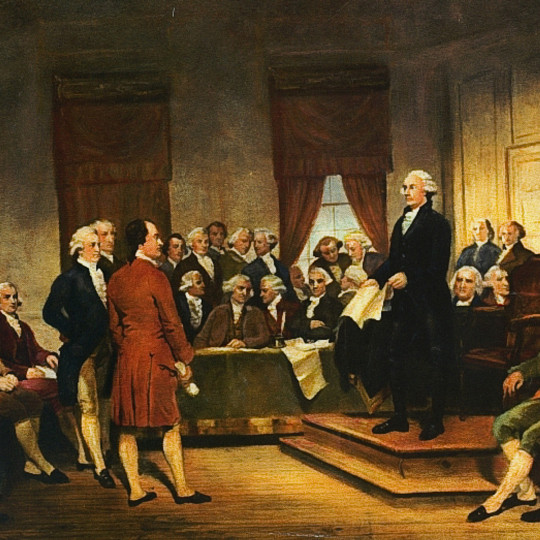
American Revolution
The American Revolution (1765-1789) was a period of political upheaval in the Thirteen Colonies of British North America. Initially a protest over parliamentary taxes, it blossomed into a rebellion and led, ultimately, to the birth of the United States. Rooted in the ideas of the Enlightenment, the Revolution played an important role in the emergence of modern Western democracies.
Origins: Parliament & the American Identity
In February 1763, the Seven Years' War – or the French and Indian War as the North American theater was called – came to an end. As part of the peace agreement, the vanquished Kingdom of France ceded its colony of New France (Canada) as well as all its colonial territory east of the Mississippi River to its victorious rival, Great Britain. While this left Britain as the dominant colonial power in North America, this newfound supremacy came at a cost, namely a massive war debt. To offset the debt, the British Parliament decided to levy new taxes on the Thirteen Colonies along the eastern seaboard of North America. Much of the war had been fought defending these colonies, after all, and Parliament decided that the colonists should help shoulder the empire's financial burden.
Prior to this decision, Parliament had adhered to an unofficial policy of 'salutary neglect' when dealing with the American colonies. This meant that, despite their royal governors, the colonies were largely left to manage their own affairs, with colonial legislatures overseeing governance and taxation. The influence of these legislatures often equaled if not eclipsed the power of the colony's royally appointed governor. Due to differing foundational and developmental circumstances, each colony maintained its own identity – the Puritan society of New England, the Dutch origins of New York, and the tobacco economy of Virginia, for example, all influenced the formation of their colonial identities. Despite viewing themselves as separate from one another, the colonies were loosely bound by their shared ties to Britain and had united in common defense multiple times during the last century of colonial wars.
At the same time, the American colonists considered themselves Britons, and proudly so. After the Glorious Revolution of 1689, and the constitutional reforms that went with it, the British were viewed as the freest people in the world; they were guaranteed a right to representative government (Parliament) as well as the right to self-taxation. The colonists believed that these 'rights of Englishmen' extended to them, as befitting of their English blood and allegiance to the English king; indeed, many of these rights were echoed in the colonies' own charters. The idea that Parliament could directly tax the colonies, therefore, went against this notion; since no Americans were represented in Parliament, Parliament had no constitutional authority to tax them (i.e. taxation without representation). Parliament, of course, disagreed, arguing that the Americans were virtually represented, as was the case with the thousands of Englishmen who owned no property and could not vote. It was this fundamental disagreement over the Americans' rights and liberties – expressed in the guise of taxation – that lay at the heart of the American Revolution and the birth of the United States.
Continue reading...
28 notes
·
View notes
Text
Socialism: Utopian and Scientific - Part 10
[ First | Prev | Table of Contents | Next ]
To return to our British bourgeois. The French Revolution gave him a splendid opportunity, with the help of the Continental monarchies, to destroy French maritime commerce, to annex French colonies, and to crush the last French pretensions to maritime rivalry. That was one reason why he fought it. Another was that the ways of this revolution went very much against his grain. Not only its "execrable" terrorism, but the very attempt to carry bourgeois rule to extremes. What should the British bourgeois do without his aristocracy, that taught him manners, such as they were, and invented fashions for him – that furnished officers for the army, which kept order at home, and the navy, which conquered colonial possessions and new markets aboard? There was, indeed, a progressive minority of the bourgeoisie, that minority whose interests were not so well attended to under the compromise; this section, composed chiefly of the less wealthy middle-class, did sympathize with the Revolution, but it was powerless in Parliament.
Thus, if materialism became the creed of the French Revolution, the God-fearing English bourgeois held all the faster to his religion. Had not the reign of terror in Paris proved what was the upshot, if the religious instincts of the masses were lost? The more materialism spread from France to neighboring countries, and was reinforced by similar doctrinal currents, notably by German philosophy, the more, in fact, materialism and free thought generally became, on the Continent, the necessary qualifications of a cultivated man, the more stubbornly the English middle-class stuck to its manifold religious creeds. These creeds might differ from one another, but they were, all of them, distinctly religious, Christian creeds.
While the Revolution ensured the political triumph of the bourgeoisie in France, in England Watt, Arkwright, Cartwright, and others, initiated an industrial revolution, which completely shifted the centre of gravity of economic power. The wealth of the bourgeoisie increased considerably faster than that of the landed aristocracy. Within the bourgeoisie itself, the financial aristocracy, the bankers, etc., were more and more pushed into the background by the manufacturers. The compromise of 1689, even after the gradual changes it had undergone in favor of the bourgeoisie, no longer corresponded to the relative position of the parties to it. The character of these parties, too, had changed; the bourgeoisie of 1830 was very different from that of the preceding century. The political power still left to the aristocracy, and used by them to resist the pretensions of the new industrial bourgeoisie, became incompatible with the new economic interests. A fresh struggle with the aristocracy was necessary; it could end only in a victory of the new economic power. First, the Reform Act was pushed through, in spite of all resistance, under the impulse of the French Revolution of 1830. It gave to the bourgeoisie a recognized and powerful place in Parliament. Then the Repeal of the Corn Laws [a move toward free- trade], which settled, once and for all, the supremacy of the bourgeoisie, and especially of its most active portion, the manufacturers, over the landed aristocracy. This was the greatest victory of the bourgeoisie; it was, however, also the last it gained in its own exclusive interest. Whatever triumphs it obtained later on, it had to share with a new social power – first its ally, but soon its rival.
The industrial revolution had created a class of large manufacturing capitalists, but also a class – and a far more numerous one – of manufacturing work-people. This class gradually increased in numbers, in proportion as the industrial revolution seized upon one branch of manufacture after another, and in the same proportion it increased its power. This power it proved as early as 1824, by forcing a reluctant Parliament to repeal the acts forbidding combinations of workmen. During the Reform agitation, the workingmen constituted the Radical wing of the Reform party; the Act of 1832 having excluded them from the suffrage, the formulated their demands in the People's Charter, and constituted themselves, in opposition to the great bourgeois Anti-Corn Law party, into an independent party, the Chartists, the first working-men's party of modern times.
[ First | Prev | Table of Contents | Next ]
26 notes
·
View notes
Text











Mackenzie River, NWT
The Mackenzie River (French: Fleuve (de) Mackenzie; Slavey: Deh-Cho [tèh tʃʰò], literally big river; Inuvialuktun: Kuukpak [kuːkpɑk], literally great river) is a river in the Canadian boreal forest. It forms, along with the Slave, Peace, and Finlay, the longest river system in Canada, and includes the second largest drainage basin of any North American river after the Mississippi.
The Mackenzie River flows through a vast, thinly populated region of forest and tundra entirely within the Northwest Territories in Canada, although its many tributaries reach into five other Canadian provinces and territories. The river's main stem is 1,738 kilometres (1,080 mi) long, flowing north-northwest from Great Slave Lake into the Arctic Ocean, where it forms a large delta at its mouth. Its extensive watershed drains about 20 percent of Canada. It is the largest river flowing into the Arctic from North America, and including its tributaries has a total length of 4,241 kilometres (2,635 mi), making it the thirteenth longest river system in the world.
The ultimate source of the Mackenzie River is Thutade Lake, in the Northern Interior of British Columbia. The Mackenzie valley is believed to have been the path taken by prehistoric peoples during the initial human migration from Asia to North America over 10,000 years ago, despite sparse evidence.
The Inuvialuit, Gwich'in and other Indigenous peoples lived along the river for thousands of years. The river provided the major route into Canada's northern interior for early European explorers.
Economic development remains limited along the river. During the 19th century, fur trading became a lucrative business, but this was affected by harsh weather conditions. The discovery of oil at Norman Wells in the 1920s began a period of industrialization in the Mackenzie valley. Metallic minerals have been found along the eastern and southern edges of the basin; these include uranium, gold, lead, and zinc. Agriculture remains prevalent along the south, particularly in the Peace River area. Various tributaries and headwaters of the river have been developed for hydroelectricity production, flood control and irrigation.
Source: Wikipedia
The Deh Cho Bridge is a 1.1 km-long (0.68 mi) cable-stayed bridge across a 1.6 km (0.99 mi) span of the Mackenzie River on the Yellowknife Highway (Highway 3) near Fort Providence, Northwest Territories. Construction began in 2008 and was expected to be completed in 2010 but faced delays due to technical and financial difficulties. The bridge officially opened to traffic on November 30, 2012. The bridge replaced the MV Merv Hardie, the ferry in operation at the time of opening, and ice bridge combination used for river crossing.
Deh Cho (lit. "Big River") is the Slavey language name for the Mackenzie River.
Source: Wikipedia
#Mackenzie River Access Point#Mackenzie River#Deh Cho Bridge by JR Spronken and Associates Ltd#engineering#Northwest Territories#nature#travel#original photography#vacation#tourist attraction#landmark#landscape#Canada#summer 2024#river bank#the North#Fort Providence#South Slave Region#flora#meadow#forest#woods
13 notes
·
View notes
Text
FLORENCE, Italy – As Steven Stokey-Daley’s fall show in Florence during Pitti Uomo wrapped, the British designer, the 2022 recipient of the LVMH Prize for Young Designers, revealed longtime fan Harry Styles is acquiring a minority stake in the company.
Financial terms of the deal were not disclosed.
“Harry and I have a shared vision for the future of S.S. Daley and we look forward to this new chapter together as we focus on brand longevity and scaling the business into a modern British heritage house,” the designer, 26, said.
The pair was introduced by Styles’ stylist Harry Lambert, who masterminded the wardrobe for the artist’s “Golden” music video, outfitting him in Stokey-Daley’s graduate collection.
The investment is geared at building S.S. Daley’s direct-to-consumer business and forge ahead with plans for a “sustainable and long-term expansion,” the company said in a statement.
After graduating from the University of Westminster, Stokey-Daley made his London Fashion Week debut in September 2021 supported by the National Youth Theatre artistic director Paul Roseby, staging a four-part performance by members of the theater, riffing on British tailoring and tackling such topics as social class, inequality, school life, sexual awakening and homosexuality.
That same year, the S.S. Daley designer was among the recipients of the British Fashion Council’s Newgen initiative and was awarded again by the British fashion governing body the following year, with the BFC Foundation Awards.
The designer’s gender-fluid take on the uniforms of the British upper classes, such as wide-leg trousers, argyle-knit wool vests and embroidered shirts, appeals to a Gen-Z sensibility, and a growing female customer base. The brand is currently stocked in a handful of retailers, including Saks Fifth Avenue, Dover Street Market, Matchesfashion, Bergdorf Goodman, 10 Corso Como Seoul and I.T Store.
Attending the S.S. Daley show in Florence, Sir Paul Smith praised Stokey-Daley and said: “I think that the ideal thing [for him] would be to try and work in parallel with a commercial company that help him develop as a commercial designer, as well as creative designer. And of course, that’s what everybody dreams of. He has the balance between commerciality and creativity.”
“I think [his designs] might have had similarities in my earlier [career]… We are in 60-something countries now. So you have to be a lot more aware of commerciality and things that work for the shops especially right now because the business and around the world is so difficult for people,” Smith added.
Styles’ investment falls in line with a growing number of celebrities becoming brand shareholders. They include, among others, Oprah Winfrey and Reese Witherspoon who invested in Spanx; Priyanka Chopra and Nick Jonas in skiwear maker Perfect Moment; Beyoncé, Jessica Alba and Rihanna in French accessories firm Destree; Mila Kunis, Cameron Diaz and Gabrielle Union in Autumn Adeigbo, and Mark Wahlberg in Italian sneaker brand P448.
81 notes
·
View notes
Text
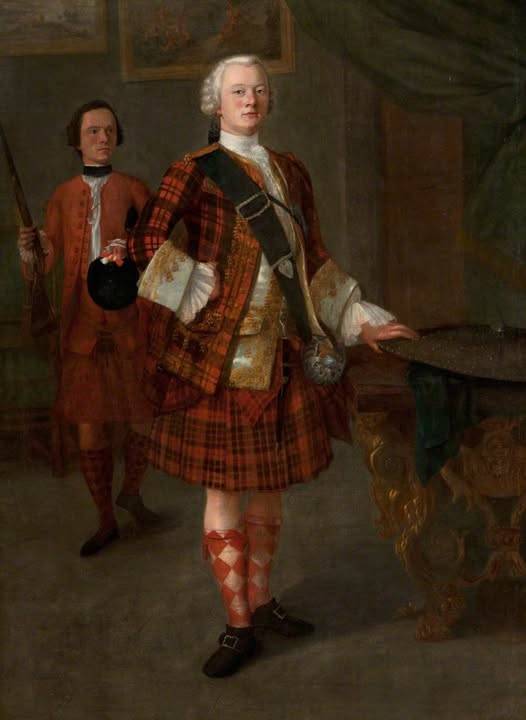
December 1761 saw the death of Alastair Ruadh MacDonnell, the government spy in the Jacobite camp known as "Pickle".
Born in around 1725, the eldest son of John Macdonell, chief of Glengarry. He was brought up as a Catholic and sent to France while still a boy, where he later became a captain in Lord John Drummond's Scots Royals regiment in 1743, when the French were planning to invade England under pretext of restoring the Stuarts, of which Jacobite clans like the Glengarry Macdonells were of course in favour.
While in France, he met Charles Edward Stuart (‘Bonnie Prince Charlie’), who had arrived from Rome to join the expedition, and stayed with him in Paris after the French abandoned the idea of an invasion. He visited Scotland early in 1745, in order to sound out political feeling there, but returned to France to warn that clan chiefs would support a rising only if backed by French money and arms. Unfortunately, by the time he reached France, Charles had sailed for Scotland to begin the 1745 Jacobite rising.
That autumn, Glengarry sailed with the Scots Royals to join the Jacobite army, but his ship was captured by the British navy off Deal and he was imprisoned in the Tower of London. On his release in 1747 he returned to Paris, where he lived in severe poverty, unable to obtain any financial help from either Charles Stuart or his father James (‘the Old Pretender’). On the death of Donald Cameron of Lochiel, who had become Colonel of the Scots-French Albany regiment in France after his escape from Scotland, Glengarry applied to succeed him in the command, but was turned down.
By the end of 1749 he was living in London, still extremely poor, and secretly trying to obtain permission to settle in Britain. A few months later, however, he reappeared, plainly now in possession of ample funds, and it is generally believed that he had somehow managed to steal some of the Loch Arkaig Treasure, gold sent from Spain to support the Jacobite rising in 1746, which had arrived too late to be of any use and had been concealed for the use of Jacobite supporters. Glengarry was accused of forging James Stuart’s signature to obtain this money.
In the 19th century, Scottish historian Andrew Lang was able to show that Glengarry was in fact a British agent, operating under the code name ‘Pickle’, and that he had been largely responsible for the betrayal of the Jacobite Elibank plot in 1752 and the subsequent capture and execution of Dr Archibald Cameron, Lochiel’s brother, in 1753.
The British government seems to have had Cameron executed on an old warrant instead of bringing him to trial in order to avoid exposing Glengarry. He continued to act as a spy until 1754, when his paymaster, Prime Minister Henry Pelham, died, and he succeeded as Glengarry chief on his father's death in September of the same year. He never married, and on his death in Glengarry in 1761 was succeeded as chief by his nephew Donald.
It is likely that he was recruited as a spy during his imprisonment in the Tower of London, and that he accepted the job due to his poverty and a sense of disillusionment with the Stuarts. He may also have had a grudge against the Camerons, as his brother had been killed accidentally by a Cameron clansman at the battle of Falkirk. He was never exposed during his lifetime and his role as a spy was only revealed by Andrew Lang 150 years later, after extensive resesearch.
16 notes
·
View notes
Text

Why Democrats Lose
A Marxist-Leninist Critique of the Democratic Party's political strategy
The four year loop ends/begins and once again the Democrats have snatched defeat from the jaws of victory in the electoral cycle. Admittedly, I am surprised the Democrats lost again to the same man after only eight years, but I am not shocked. In an echo of 2016, the Democratic incumbent was replaced by a former rival become functionary within their administration, a new candidate without an atom of charisma, to continue the ongoing halfhearted campaign against Donald Trump, specifically. His is the only wretched face not to change in the past twelve years.
This is an important fact in understanding the DNC and why it keeps losing.
Trump has become the primary antagonist in the Democratic psychodrama, performing the role of the Shadow of Americanism (from the Neo-Liberal faction’s Americanist perspective). He is the walking icon of the shape that every Blue Democrat, laboring under false consciousness, attempts to will themselves into not having the possibility of being. He is boorish, boisterous, and an unabashedly self-centered bandit for Imperialism, a dual Monopolist-Capitalist and politician, in many ways the modern Cecil Rhodes. Trump’s supporters follow suit in a mutually reinforced pattern with their representative, they make themselves more overtly Imperialistic.
Trump’s base, predominantly middle-class small shareholders and small business owners who are disenfranchised from macro American economics, have much to gain from a shaking (but not the actual sundering) of the American market and an obvious expansion of the United States’ imperial holding. They do not disguise their want to remove the current administration of big capital, the wholly synthesized syndicates of finance and industry, to replace the old guard with themselves as the new cast of financier-industrialist Capitalists and to throw open new markets through foreign intervention for the making of profit in Asia, Latin America and Africa. They support Trump because he seems to be what they wish to be, a Monopolist-Capitalist rising within Hegemony, and they support him for what he promises, to share with them the plunder of the world. So, Trump’s supporters become more emboldened in their Imperialism, which then makes them more resemble the shape of the Neo-Liberal Shadow-Self. Trump himself (like his middle-class followers) only aspires to the ranks of the grand Monopolist-Capitalists, but he can proclaim his affiliation with the likes of Elon Musk to further sell the image.
The True Blue Democrat also is an Imperialist and member of the middle-class, but one who is comfortable with the present management of the Imperial system. They, fundamentally, are a functioning part of the greater American market, and the world-Imperialist market. They are the reserve of the Imperial administrative caste. So by extension their interests are the interests of the United States and the current managers of world-Imperialism. But, just as any caste of Imperial administrators throughout time, their group-mind had to develop a self-concept to justify their domination and exploitation of the world to the self. Like their forerunners, the Democrats relied on the belief in a certain innate Liberal moral superiority that was likewise popular in the middle-classes of the old French, British, and German empires of the 19th and early 20th centuries. A virtuous self given permission to plunder, justified through the self-concept of being a person spreading an abstract enlightenment and freedom. “For who better would there be to properly guide the development and distribution of production and its profits then one so educated and caring?” they reason. With this excuse in reach, stealing from the world hand over fist can be rendered “sensible” or “reasonable.” The political careerists of the middle-class can get their Democratic ticket by appealing to such moralist “concerns” at home or abroad in the “poor countries” controlled by dictators and bandits in turn ruled by their libidinal appetites and greed. In these political ghosts, the imagined or real autocratic exploiters (when real, often installed by the U.S. in the first place), the Democrat encounters the Shadow of Americanism, for such figures are the fruit and embodiment of themselves, their representatives, and their imperialist economic life. So, when the Democrat sees Trump or, more properly, his supporters, they see their own hated Shadow-Self walking in the world and are filled with a real, genuine hatred. It is a hatred rooted in a repressed hatred of injustice, but transmuted by the act of projection into a hatred that licenses injustice (as shown by the prevalence of homophobia in anti-Trump propaganda).
As with anything dredged up from the deep subconscious, this visceral hatred is highly exploitable–and exploited it is, by the groups of Liberal careerists and their public facing politicians with few reservations about their place in Imperialism and the work they do for the world-Imperialist front. To the DNC, Trump and Trumpism has been a political godsend. Through their propaganda they can cast Trump and his supporters as a barbarian hoard coming to trample all the forces and structures of morality that prevent the great power of America from being used by beasts. Then, the Democratic Party casts itself as the David fighting back these modern Philistines and their Goliath. In the spectacular struggle against Trump, the Democratic administrators can be freed from nearly all responsibility of action to their base. They are freed to work openly with Republican factions aligned with the Capitalist-Monopolist syndicates that support the various DNC elements, to both pursue Imperialism and shore up the fraying American union. All neatly shielded by the rhetoric of “all against Trump!” Herein is the economic basis of the “Resistance Democrats,” a phenomenon quickly sprouted in the 2016 cycle and already being drafted up again for this one!
But, to really sell the race for the White House as the Valley of Elah, the Democrats must always be at the brink of loss before pulling out the slingshot, and unlike David, they cannot afford to decisively win. Which, as we have just witnessed again, is precarious. The DNC does not, in fact, “want to lose” as the popular slogan says. The victory of Trump is something they do wish to avoid, despite most appearances. He, as an entity, and the rhetoric he inspires, has a negative effect on the stability of American Imperialism. His brazenness about plunder, intervention, and saber rattling makes the subtle elements of the Imperial work more challenging. It is hard to convince American allies or client states about the benefit of alignment with America when the president can be expected to rescind any agreements and drop bombs on anyone at random personal whim. In addition, Trump’s economic collaboration with Russian Capital is an existential threat to American monopoly in the Middle-East and Europe as it empowers Russian Imperialists and the United States’ Imperial rival, the Russian Federation. But, the DNC’s current strategy is to play electoral Russian Roulette, and just like the first round in 2016 the Democrats pulled a hot chamber in 2024.
While the Blue Dog chases its tail, this leaves the question though of what the Communists should do with this state of affairs going forward. We should not delude ourselves that Democratic administrations would treat a serious Communist threat with the same polite magnanimity as they have open fascists. The fact that recent Republican and Democratic administrations alike treat purportedly Communist institutions and media with supreme toleration hints at the scope of the problem to be confronted. We should, as we should have done in 2016, throw out the opportunist organizations from our movement. We must throw out the self styled “Leftists” and vulgar “Anti-Fascists,” and throw out the opportunist pseudo-Marxists groups and figures who, in the style of the old “economist” Mensheviks, argue for backing the ascendancy of the Trump-supporting middle-class. Absolutely do away with the obsolete and fundamentally Americanist CPUSA and DSA. Every “Communist” organization with “of America” or “USA” in its name. The vulgar “Anti-Imperialist” parties that divert back into the American Spectacle by running presidential candidates, as though Imperialism were only a “bad habit” of America. All of them washed away in our Red Flood.
Communists do not have a pony in this race. The Working Class as a whole does not have a pony in this race. The Masses in North America already realize this, as shown by the decrease in both Democratic and Republican turnout, showing them to be more advanced in their understanding than many “Communists”! We must capitalize on this, and swiftly!
We are to confront head on the contradiction of Imperialism, intellectually and politically, and work for the weakening of each link in the chain of world-Imperialism. Communists must excuse ourselves from the phantasmic politics of Imperial administration. We cannot work with Trump’s supporters whether in or out of power; they are the most reactionary and backwards of the middle-class and their goal is simply their faction’s domination over the withering American empire. Nor can we work with the new “Resistance” Democrats or whatever champion they rally around in each new cycle. The stability of the American union and its Imperial holdings is their paramount goal, which is wholly anathema to us. It is the cause for their cries for “unity” and “bipartisanship”. Any who agitate for unity with either faction is a bold opportunist. We must escape the centripetal pull of false “unity” and separate ourselves to move with the Working Class.
Free from Liberal Shadows, we can, wide awake and clear eyed, observe our local polity and perform social diagnostics on it. We do not need to hate Trump; he is not our mirror darkly, evil goatee and all; he is simply an unmasked avatar of Imperialism. We do not need him as our beacon; we have our golden polestar in the reddening sky. He is merely our enemy, and so are his supporters in all forms, the plague-infested rats of Imperialism. The feckless DNC and the Liberals who keep letting these hyper-real losers win are no better. Indeed, the weak and waning middle-class, the dwellers in the shadow of the Bourgeoisie, are all scurrying vermin looking for the one ship that isn’t capsizing. For all of these we have no use for passionate feeling at all, simply cold iron contempt.
It is time to shed the false consciousness of the skipping anthem on repeat. Let us now be free from the phantasm of the election cycle, the illusory four-year “loop”. While Democrats aspire to chase the same rabbit around the same track forever, our course is outward. The dialectic advances. The arc widens. Revolution is not a loop, it’s a spiral. Our footsteps are relentless. And with each circuit we build Revolution until it is victorious.
~Blossom of the Hundred Flowers∴ November 6, 2024
Illustration by Pillar of October∴
#us elections#communism#democrats#us politics#marxism leninism#marxism-leninism#proletnous#american politics#2024 election#election 2024#unfortunately thinking about donald trump with the evil spock goatee
9 notes
·
View notes
Note
How do you feel about nation jobs or finances in your universe? Like are modern Matt or Alfred on government payroll even if they don’t do anything? I know you’re mentioned that Alfred is better at managing his money than Matt, is he rich??
Sorry I’m not phrasing this very well 😅
This is somewhat esoteric even for me, but I tied their abilities with money to their economic histories.
Alfred was born looking pretty pathetic next to the Spanish possessions in Mexico and South America or even British holdings in the Caribbean but, in short order, made up a significant percentage of the ships, people, and wealth of the British Empire. He became that on what was primarily the efforts of private enterprise. Alfred grows up understanding he is valuable; he represents value, and his choices create value. He's easy to love because he's a goddamn cash cow for Arthur until the Seven Years War when Britain spent a shit ton and wanted the Yanks to pay their share, and we threw a bitch fit and declared independence.
Matt, however, has the French bitching about what a money hole he is from about 20 minutes after he comes into being. The Basque, by far, made the most money initially with their fishing and whaling in the east, following what was reasonably similar to the Viking routes into Newfoundland. The fur trade that drove French settlement faced collapse about a half dozen times in his childhood, and besides a short binge economy for Ginseng and its brief boom in China, his entire existence was just fur. Dead beavers and the black market. That's it.
While the US was building ships, growing cash crops, running a fur trade economy, engaging in fishing, rope making, pitch collection, barrel making and everything and anything else, in the Caribbean, they had 90+ control over sugar production and trade routes. Canada had 10% of the population and thus 10% of the market power. We didn't do shit except freeze, fire at the British, commit war crimes against the New Englanders, ditch the farms and run off to the west to make families with indigenous women and run furs up the rivers to the point that France tried to make it illegal for people to leave the settlements of Quebec City and Montreal without permission.
So from a relatively early point, Alfred is very smart with his investments, and he's been making his investments since the early 19th century, so there's a significant but often catastrophically destroyed habit of investing. When he was younger and incredibly newly independent, he got fleeced a few times, but he's called smart and secure, especially since the 1929 crash. It's not remarkably large amounts of money because he'll never completely trust the government, and he doesn't want to attract attention or pay massive amounts of taxes, so he's very well diversified. But he's certainly not poor. All his more expensive hobbies come from a particular office in the state department that Alfred sometimes cooperates with and sometimes doesn't, depending on how anti-establishment he and the public feel.
As for Matt, having spent a lot longer as a colonial subject, it's not that he's entirely shit with money but what he knew how to do. The heart of the empire was the financial hub and was outside his control long after even the Confederation in the 1860s. The money situation has been a nightmare since the earliest days of the French Regime using playing cards to pay people. Colonial America had some similar issues. The whole concept of the US dollar originated in the 1690 invasion of Quebec when the Massachusetts Bay Colony printed its own money to fund the expedition, but Alexander Hamilton did some flash economic magic for the US in this department in the 1790s, so it got its shit together long before Canada. Matt knows what he needs to know. He was stationed in various Canadian ports, keeping an eye on his father's investments, not his own.
So, in the modern day, Alfred reads his bank statements every month, keeps track of his subscriptions and bills, and probably has an accountant. Matt is more aware of Alfred's money habits than his own. Because he's over here just kind of vaguely wondering if his debit card will work because my man cannot make heads or tails of his economy (no, seriously, Canadian economists have no idea how Canada's own shit works. Sometimes it's pretty fascinating, there's often no real consensus like the US academic economist have.) And international investors in Canada are always freaking out because the Canadian economy is always getting its shit rocked by the US economy. It's hilarious to think of people in Matt's life frustratedly trying to figure out where and what his money's doing. If their health is tied to their economies, Matt's in pretty good shape, thanks to close ties to the US, but he's randomly dying reasonably often because the US economy's tiny little ripples will randomly tear him apart. It's pretty funny (laughs so I don't sob in the Canadian job market.)
And that's pretty fitting, considering that most Canadian economic policy is boiled down to 'hope the Americans are feeling cooperative next time NAFTA comes up for debate.'
#the ask box || probis pateo#Alfred and Matt || lonely boys with the longest borders#Alfred || o beautiful for spacious skies#Matthew || my country is winter#meatsack mechanics || the sociology and biology of nations
61 notes
·
View notes
Text
The Shot Heard Around the World Chapter 34
New Alliances (Wattpad | Ao3)
Table of Contents | Prev | Next
February 6, 1778
France was pleased with the alliance with the newly created United States of America. She loved any chance to get back at Britain, and since he had stolen members of her family, she would be happy to help him lose his beloved son, the one he seemed to hold in the highest regard.
Maybe it was petty, but it was fun either way.
The new little nation was so fascinating, with no king to follow, seemingly no actual army, and yet not only capturing a British army but two of Britain’s own colonies! He was so interesting.
France knew an alliance could work for her benefit as well, even if the United States were not rich or competent. It weakened Britain’s power in America and indebted him to her, and country or not, he was a former colony, and they always had weaker wills, as they were made to obey a greater power.
If the war turned out well, France could have a lovely little quasi-colony in the Americas, allowing her to keep ahold of her former power in the Americas, even as a lesser version.
The terms of the treaty would allow that as well. Sure, she was required to give military and financial aid to United States and recognize his independence, all things that benefited him, but she was most interested in the clause that banned either country from making peace with Britain without the consent of the other.
France knew it had been put in there to ensure that she would keep fighting alongside him until Britain recognized his independence, but she knew it had a far better purpose.
If the little United States, someone with no experience with peace treaties, couldn’t create one without her permission, that gave her a chance to…manipulate the circumstances in her favor. United States would be willing to follow her lead, she was sure, as she was the angel saving him from his own destruction at the hands of Britain (he was doing well, but he could never win without help from other real countries), and with that trust, she would ensure a good deal for her.
Besides, he was a former colony. His biology demanded that he have someone to listen to, and while humans were a decent substitute, a country would be better for him in the long run.
She was sure United States would accept any deal that forced Britain to recognize his independence, so he was a non-issue. Still, France would need to start planting some seeds in his mind. Britain certainly told his colonies horror stories of her, so it was best to ensure that he viewed her positively by the time negotiations began.
Obviously, France herself would not be fighting against Britain, but she had plenty of colonies she could order to fight on her behalf. She would have to ensure any she sent wouldn’t talk bad about her in order to keep from feeding into whatever biases United States had about her.
But as she planned her letter to both her colonies and to the United States, she couldn’t help but smile.
She was sure this was going to be a fortuitous partnership for them both.
• ───────────────── •
February 23, 1778
Baron Von Steuben was a very interesting man. Benjamin Franklin had sent him to give their men a more professional training and appointed him as Inspector General.
He seemed nice and had been familiarizing himself with the camp since his arrival, talking with the men while inspecting their weapons and log huts. United States appreciated how he had immediately gotten to work, as he knew they were long overdue for someone who knew what they were doing.
“Hopefully, he can actually help. He’s only been here for a day,” New York said. United States sighed. He knew his son was right, but United States liked to cling to anything that could give him hope. It made it all feel less…daunting.
Eventually, Baron Von Steuben finished his round of the camp, walking up to United States.
“You are the nation, yes?” he asked in French. United States nodded.
“I am, sir,” he responded in the same tongue, not expecting the Prussian general to know any English and figuring he must be speaking French for a reason.
“Your army is very impressive. No European army could have held together in such circumstances,” Baron Von Steuben said. United States allowed himself a small smile.
“We’ve barely been holding together as is,” Massachusetts grumbled, but still sounding proud nonetheless.
“Thank you, sir. We are very determined to win this. Of course, determination cannot win one a battle, so we appreciate any help you can provide us,” United States said.
“I hope I can be of some help,” Baron Von Steuben said before looking United States up and down, “You look more put together than most.”
United States gave the man a wry smile at the comment.
“Courtesy of my father. He…he expected perfection at all times. Even if I was not to fight, I needed to know what I was doing. He…” United States shook his head, trying to push aside the memories that were swelling up unbidden.
“I can take control if needed,” James offered. United States wanted to protest, but James’ offer was less of an offer and more of a statement and the man quickly took control, and United States let the world fade into darkness.
• ───────────────── •
March 16, 1778
England wasn’t sure how he felt about the Peace Commission that had been established. He knew establishing negotiations with the rebels was important, especially with Nova Scotia and St. John’s Island being prisoners of war, but the idea of negotiating with rebels irked him.
Especially because it was less like negotiations and more like giving Thirteen Colonies almost everything he wanted because he threw a tantrum and got hundreds of innocent people killed.
“Penny for your thoughts?” Wales asked. England huffed out a small laugh before wincing at the pain in his jaw. Wales passed him some paper and quill, smiling sadly at England.
He hated the pity. He hated the godforsaken prison of silence that he had been trapped in. He hated the constant pain from the injury more than anything. Perhaps that made him biased regarding conversations about negotiations with the rebels, but he didn’t care.
Thirteen Colonies had maimed him, and the best solution anyone could come up with was to grant the rebels all of their demands aside from independence.
England found it foolish. They were only encouraging further bad behavior from Thirteen Colonies. If his mother had been here, she would never have tolerated any of this, and she would have dragged Thirteen Colonies home from the get-go. She would have punished him so thoroughly that Thirteen Colonies would never even think to betray her again.
England missed her.
England picked up the quill, slowly writing out his thoughts for Wales. As tense as their relationship was at times, Wales was a good listener, whether you wanted advice from him or not.
I feel this will only encourage further disobedience with Thirteen.
“It might, but if we are getting to this point, I think that shows that people are worried that if we don’t make some concessions, we’ll lose him altogether. If we force Thirteen back, he’ll become like Ireland. If we are able to work something out, he will be loyal again and more willing to listen to you and Britain because you are both willing to listen to him,” Wales said. England sighed, knowing Wales probably had a point about Thirteen Colonies becoming like Ireland.
He’s already become too much like Ireland.
Wales frowned at that message, looking perturbed. England knew the man was close to Ireland and had some sort of trust in the rebellious colony, but that should only make it easier to see the similarities between them.
“Ireland rebels because he hates you. Thirteen rebelled because he tried too hard to be listened to, only to be ignored, to the point where he felt independence was his only option. I think…I think this will be good. It will give him another option. I don’t…I don’t think he really wants independence. I just think he doesn’t know what else he can do,” Wales said. England frowned, looking away.
Perhaps you’re right. I just worry about the precedence we would be setting with this.
Wales put a hand on England’s shoulder, smiling softly.
“It’ll be okay,” he said, “Something will work itself out.”
Wales said it with a sort of confidence that England wished he could have.
Because he didn’t see this as something that they would be able to work out.
#countryhumans#countryhumans america#the shot heard around the world by weird#countryhumans england#countryhumans french kingdom
7 notes
·
View notes